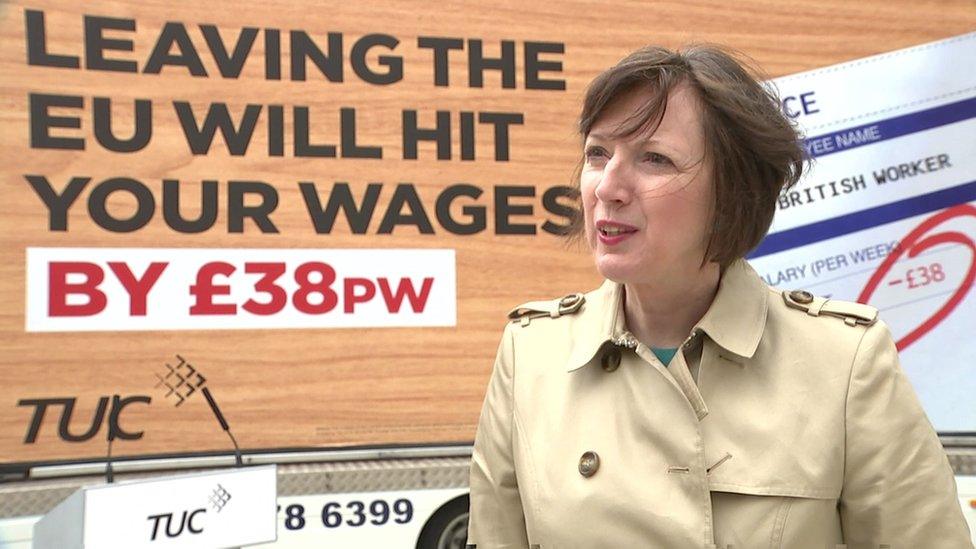Reality Check: Would Brexit cut wages by £38 per week?
- Published

The claim: Trade union umbrella body the TUC says leaving the EU would cut average earnings by £38 per week by 2030.
Reality Check verdict: The TUC has taken other bodies' forecasts that leaving the EU would lead to slower growth in the economy and used them to predict lower wages. While the precise figures are highly uncertain, if you believe the forecasts for the economy you can also believe that wages would be lower.
TUC general secretary Frances O'Grady says: "Working people will be £38 a week worse off if we leave."
Where has that figure come from?
In its report,, external the TUC has taken the average of the falls in GDP (that's what you get when you add up the value of everything produced in the economy) for 2030, predicted by the OECD, the Treasury and the Centre for Economic Performance at the London School of Economics, as well as the fall in wages expected by the National Institute for Economic and Social Research (NIESR).
That gives an average figure of 5.6%. The TUC has assumed that a 5.6% fall in GDP would lead to a 5.6% fall in average earnings.
Average earnings at the moment are £492 a week. The current OBR forecast is that they will go up by £220 a week by 2030. The TUC reckons it will only go up by £182 a week if the UK leaves the EU, which is a difference of £38.
So, what do you need to believe to accept this figure? First there's the decline in GDP predicted by other bodies. Most serious models are predicting a downturn in growth if the UK leaves the EU, but we have discussed the problems with economic modelling in the past.
The next step is that a decline in GDP growth would lead to an identical fall in average earnings.
That's a reasonable assumption. The NIESR looked at real wages separately, external and predicted that they would be hit by more than they expected GDP to suffer, as a weaker pound increased the price of imported goods, raising the rate of inflation.
The TUC itself warns of the high level of uncertainty involved in any such exercise, but claims: "it is not contentious to project a material further downward impact on living standards following Brexit".



- Published10 May 2016

- Published26 April 2016

- Published22 February 2016
